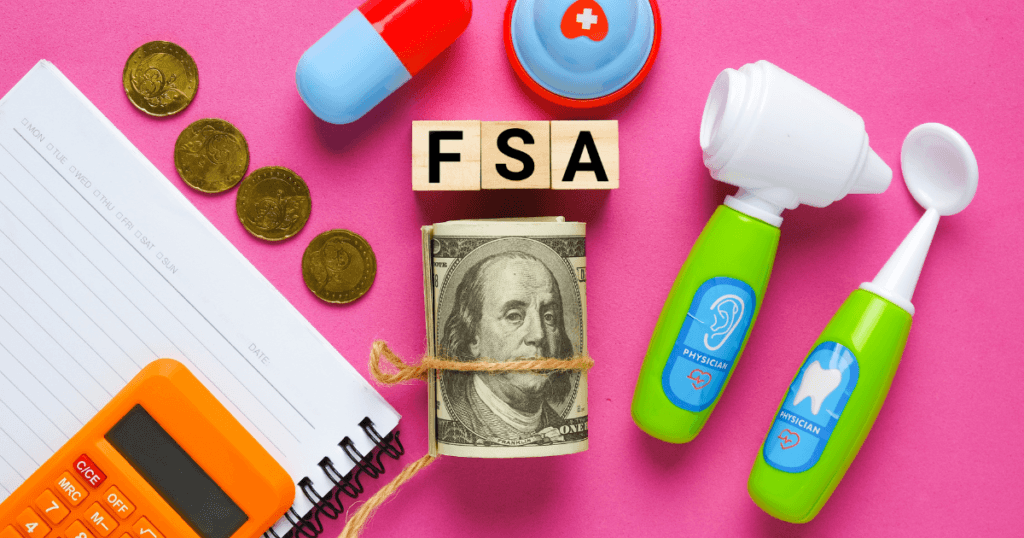Are wheelchair ramps FSA eligible? This is a common question for many families and individuals who rely on medical equipment to improve accessibility at home. Yes, wheelchair ramps can be eligible for reimbursement through a Flexible Spending Account (FSA), provided certain conditions are met.
Understanding these criteria is important to make the most of your FSA benefits.
Flexible Spending Accounts (FSAs) are designed to help us manage out-of-pocket medical expenses by allowing us to set aside pre-tax dollars. This can be a huge help when needing items like wheelchair ramps.
The ramps qualify if they are deemed medically necessary for improving accessibility for someone with a medical condition or disability. You need to get a letter of medical necessity from your healthcare provider to ensure the expense qualifies under FSA rules.
Understanding the details of FSA eligibility can seem a bit confusing, but knowing that your wheelchair ramp costs might be covered can offer significant financial relief.
By planning and documenting the need for these improvements, we can take advantage of our FSA to support mobility and accessibility at home.
Are Wheelchair Ramps FSA Eligible? Key Takeaways
- Wheelchair ramps can be FSA-eligible with proper documentation.
- FSAs help with medical expenses by using pre-tax dollars.
- A letter from a healthcare provider is needed for FSA reimbursement.
Understanding FSA Eligibility for Wheelchair Ramps
Let’s talk about FSA eligibility for wheelchair ramps. Flexible Spending Accounts (FSAs) can cover many medical expenses, including some mobility products. But are wheelchair ramps covered?
First, FSAs generally reimburse for medical equipment that helps with a medical condition. Mobility devices like wheelchairs and scooters are often covered. However, a healthcare provider must deem the ramp itself medically necessary.
To qualify, a doctor’s note or prescription is usually required. This documentation should state that the ramp is necessary for the specific medical condition. It’s not enough to just want a ramp for convenience.
Here’s a quick list of what’s typically needed:
- Doctor’s note or prescription
- Proof of purchase showing the cost
- Itemized receipt from the seller
The expense must be for the improvement or maintenance of health. This includes making home modifications, like wheelchair ramps if they’re medically necessary.
We recommend checking with your FSA plan administrator. Each plan has its own rules, and they can confirm whether your wheelchair ramp expense qualifies.
Examples of eligible items:
- Wheelchairs
- Scooters
- Assistive devices
- Ramp installation costs (with proper documentation)
In summary, while wheelchair ramps can be FSA eligible, they must meet specific criteria. Proper documentation is crucial to ensure compliance with FSA guidelines. This can help us make the most out of our FSA benefits and improve accessibility for those who need it.

Flexible Spending Accounts in Detail
Flexible Spending Accounts (FSAs) are useful tools for managing medical expenses. We contribute pre-tax dollars to our FSAs, lowering our taxable income.
This money can be used to cover a wide range of medical expenses, including doctor’s visits, prescriptions, and even some medical equipment.
There is a contribution limit for FSAs. For 2024, the limit is $3,050. In 2021, the limit was different, set at $2,750.
Contributions are deducted from paychecks throughout the plan year, and the money is then available for eligible expenses.
We use an FSA card to pay for eligible items directly. This can be convenient because it acts like a debit card. In cases where we can’t use the card, we can still get reimbursed. We simply submit receipts to our plan administrator for payment.
FSAs also offer a grace period. This means we may have an extended time to use the funds beyond the plan year. It’s important to check with our plan administrator for specific details.
Many products are FSA/HSA eligible, including wheelchairs, scooters, and other medical care items. This helps us avoid out-of-pocket expenses. Even some over-the-counter medications and prevention tools fall under FSA eligibility.
Having an FSA helps us manage costs better, especially with high-deductible health plans.
By planning our contributions wisely and keeping track of eligible expenses, we maximize the benefits of our FSAs. This keeps our healthcare spending within budget throughout the year.

Paying for Wheelchair Ramps with FSA
We can use our Flexible Spending Account (FSA) to pay for wheelchair ramps. The IRS allows certain home modifications, including ramps that provide access for individuals with mobility challenges, to be FSA-eligible.
If we purchase a wheelchair ramp, we should keep the receipts. These receipts help us prove that the expense is FSA-eligible.
We can use our FSA card to pay directly. This works like a debit card. We could also pay with a credit or debit card and submit a claim for reimbursement.
Costs for a ramp may vary. They depend on the type and complexity. We may find ramps at stores like Scootaround. This store often carries other FSA-eligible products, too.
Besides home ramps, the FSA can cover vehicle modifications, which makes transportation easier for those using wheelchairs, walkers, or canes.
If we have questions, store sales specialists can offer advice and help ensure the product we buy is covered by our FSA.
Electric wheelchairs and other mobility equipment are also covered. Items like walkers and canes are often FSA-eligible, too.
It’s important to track our spending to maximize benefits. Our FSA contributions are deducted from our federal income tax. This means that using our FSA wisely can save us money.

Maximizing FSA Contributions and Benefits
We should understand its benefits and limitations to make the most of our Flexible Spending Account (FSA). First, we need to be aware of the contribution limits. The IRS set the FSA contribution limits for 2024.
Contribution Limits and Eligible Expenses
- FSA Limit: $3,200
- Medical Expense FSA Accounts: Pay for eligible medical, dental, and vision expenses.
With an FSA, the amount is deducted from our federal income tax and payroll taxes.
Budgeting and Planning
Consider our expected healthcare costs for the year. Estimate the amount we might spend on co-pays, prescriptions, and other eligible expenses. Budgeting wisely is important since unused funds might be forfeited depending on our employer’s policy.
Using FSAs and HSAs Together
While FSAs offer tax savings and immediate fund availability, we should also consider Health Savings Accounts (HSAs) if we qualify. HSAs have higher contribution limits and funds that roll over from year to year. HSAs are especially beneficial for those with high-deductible health plans.
Employer Contributions
Some employers might contribute to our FSA or HSA. It’s worth checking if our employer offers matching contributions. This can significantly boost our healthcare funds.
Required Paperwork
Keep track of receipts and necessary paperwork. Submitting accurate and timely documentation avoids delays and ensures we get the most out of our FSA.

Wrapping Up
We’ve covered a few key points about wheelchair ramps and their eligibility for FSA.
Key Points:
- Wheelchair ramps can be considered a medical expense.
- FSA funds can be used if ramps are medically necessary.
- Proper documentation from a healthcare provider is required.
Documentation Needed:
- Doctor’s note or prescription
- Proof of medical necessity
Checking with your FSA administrator and keeping all paperwork organized is important.
Quick Tips:
- Always keep receipts.
- Consult your FSA plan details.
- Contact your FSA administrator for specific questions.
We hope this helps clarify how FSA funds can be used for wheelchair ramps.
Frequently Asked Questions
We often receive questions about using FSA funds for wheelchair ramps and other mobility aids. Here, we address some common queries.
Can a motorized wheelchair be purchased with FSA funds?
Yes, motorized wheelchairs can be bought using FSA funds. They are considered eligible for medical expenses.
Are portable wheelchair ramps qualified for FSA reimbursement?
Yes, portable wheelchair ramps are eligible for FSA reimbursement. They fall under the category of medical equipment necessary for mobility.
What mobility aids are approved for payment with an FSA?
FSA funds can be used for home modifications, such as installing wheelchair ramps, as long as they are medically necessary. Documentation from a healthcare provider may be required to justify the expense.
